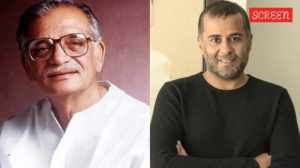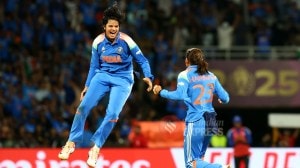Maharashtra doctors say no to swine flu vaccines
It was the state worst hit by H1N1 last year and is witnessing a second round of infections this monsoon,but doctors and paramedical staff ...
It was the state worst hit by H1N1 last year and is witnessing a second round of infections this monsoon,but doctors and paramedical staff in Maharashtra are refusing to take the swine flu vaccine.
Their reasons range from doubts over the effectiveness of the vaccine,the mode of administering it,its possible side-effects,and even automatic immunity gained from working with patients so far.
Wondering what to do with the massive stock of vaccines before it expires in October,Maharashtra will take a final call on Monday,even as the state government has written to the Centre asking if it can return the same.
This situation is quite a contrast from Kerala,say,where 16 deaths have been reported since May this year,or Delhi,which witnessed a spurt during the winter. While in Kerala,95 per cent of the 45,000 vaccine doses sent for doctors have been used,Delhi has reported close to 60 per cent usage.
Maharashtras performance is not at all good. They are doctors and are being given preventive treatment. It does not make any sense why they are not taking it, Union Health Secretary K Sujatha Rao told The Indian Express. We will be taking up the matter with state health officials.
Not even 2,000 of the 34,300 French vaccines procured by Maharashtra at a cost of Rs 300 per dose have been administered. Following the casualties last year due to swine flu a majority of them in Pune and Mumbai the Union Government had placed an order with French drug maker Sanofi Pasteur for 1.5 million doses of H1N1 vaccine in December,mostly to be given to the high-risk group of medical practitioners.
In Pune,which was the epicenter of H1N1 in the country for a long time,only 411 doses of the 2,000 available have been taken so far. Doctors are citing side effects seen in one in a million cases. Then there are questions about what use the vaccine would be if the virus changes,as it does in the second wave, says Dr Arun Jamkar,Dean of Sassoon Hospital,and B J Medical College in Pune.
The state government is particularly flummoxed as the doctors had given their consent to the government in March when the decision was taken to procure the vaccines from the Centre. I do not understand the turnaround, Additional Chief Secretary (Public Health) Sharvaree Gokhale said.
Dr Pravin Shingare,a member of the technical advisory committee for H1N1 to the state government,said the panel had heard four arguments against the vaccine from doctors: that it did not give long-term protection and worked only for about four months; that an intra-nasal would be launched on Monday; that they had developed immunity; and whether the government would be responsible for any side-effects.
We have recommended several measures to the state directorate of health services,including taking an undertaking from doctors saying they refuse to take the vaccine or to make it compulsory or to make the vaccines available to private hospitals, said Shingare.
Officials said Kerala and Delhi too encountered similar hurdles from doctors for a while. Dr Amar Fettle,Civil Surgeon and nodal officer for H1N1 in Kerala,said there was some resistance in the state in the beginning. Initially,they were not coming forward. This monsoon,after fresh cases were reported,doctors have taken the vaccine and we have asked for a second lot, he said.



- 01
- 02
- 03
- 04
- 05




























